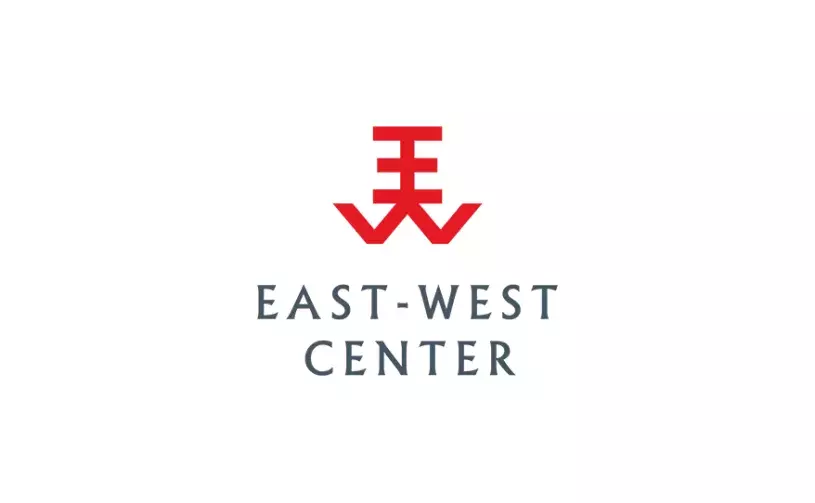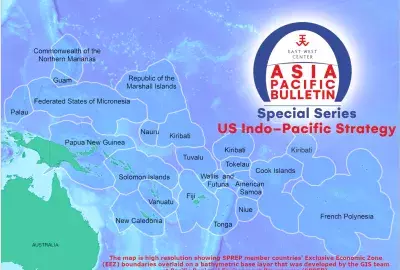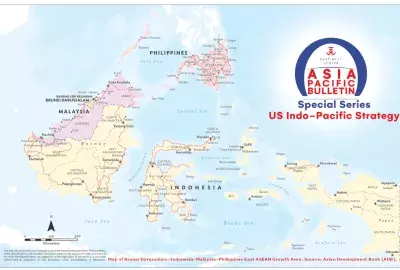Error message

|
Ruji Auethavornpipat, former East-West Center in Washington visiting fellow, explains that “Washington suggests Thailand has not done enough to improve working conditions for both Thai and migrant workers despite numerous domestic reforms in recent years." |
The United States has suspended Thailand’s trade privileges under the Generalized System of Preferences (GSP), emphasizing the inadequate protection of worker rights in Thailand as the reason for its judgement. Washington suggests Thailand has not done enough to improve working conditions for both Thai and migrant workers despite numerous domestic reforms in recent years.
US Pressure on Thailand
The GSP announcement came on October 25, 2019 — on the eve of Thailand’s hosting of major ASEAN-led summits in Bangkok. Created in 1974, the GSP is used by the US government to eliminate duties on imported goods, and in doing so, promoting economic growth of developing countries. The suspension of Thailand’s GSP will come into effect on April 25, 2020 and affect 573 Thai export goods, including all seafood products.
The GSP cut is expected to cost Thailand $1.3 billion annually, representing 30 percent of all trade privileges ($4.4 billion) or 4 percent of Thailand’s total exports (31.9 billion) to the United States.
“Despite six years of engagement, Thailand has yet to take steps to provide internationally recognized worker rights,” the United States Trade Representative (USTR) explains as the reason for revoking Thailand’s GSP.
Speculation looms large that the move by Washington is a retaliation against the Thai government’s decision, made four days earlier, to ban the production, import, export, transfer or possession of three hazardous chemicals (the herbicides paraquat and glyphosate and the pesticide chlorpyrifos). The ban will extend to imports of agricultural products from the United States where such chemicals are used. With the ban, it is thought the US trade deficit with Thailand — $19.3 billion as of 2018 — would worsen. Hence, in Thailand, the speculation is that the US decision on GSP is simply about the trade deficit and not the consideration outlined in the official US announcement.
Such speculation only serves as a distraction from the larger problem identified by the United States — the inadequacy of labor protection in Thailand.
Labor rights protection was among the priorities of the Obama administration’s trade agenda. In November 2015, USTR Michael Froman initiated a formal review to examine whether Thailand was meeting the GSP eligibility criteria on worker rights “with respect to freedom of association, collective bargaining, acceptable conditions of work, and forced labor, including with respect to migrant workers.”
The review was conducted in response to the petition submitted by the American Federation of Labor and Congress of Industrial Organizations (AFL-CIO) in 2013. It occurred simultaneously with the US State Department’s downgrading of Thailand in the Trafficking in Persons (TIP) Report, and the European Union’s singling out Thailand for failing to eradicate forced labor among migrants in Thai fishing industries.
At the broader international level, Thailand is currently subject to four freedom of association complaints lodged at the International Labour Organization (ILO). The oldest ongoing case, taken up by the ILO in April 2013, investigates an alleged anti-union measure against railway union officials who took industrial actions on unsafe working conditions.
Just when Thailand thought it was off the hook from international scrutiny on labor practices following the upgrading of Thailand’s TIP ranking in 2018, the GSP suspension serves as a reminder that more needs to be done to protect worker rights in Thailand. The rights to freedom of association and collective bargaining are issues raised by the USTR to justify the GSP cut in 2019. Furthermore, “longstanding worker rights issues in the seafood and shipping industries” where migrant workers comprise much of the workforce, are highlighted.
Thailand’s response
Despite the USTR’s clear emphasis on labor issues, Thailand’s response has been lukewarm on the labor protection front. Prime Minister Prayut Chan-ocha urged the public “not to worry too much” while he tried to negotiate with the United States at the ASEAN Summit hosted in Bangkok in November 2019.
Meanwhile, the Thai Ministry of Commerce came up with seven measures to offset the loss of GSP, ranging from pushing more exports into the United States before the GSP cut takes effect, diversifying risks by expanding into new export markets, certifying the quality of Thai products, and deepening relations with other trade partners. None of the identified measures mentions anything specifically about improving labor conditions in Thailand.
Furthermore, the Thai Labor Minister cautioned it might be “inappropriate” to give migrants more rights than national workers. It was explained that international standards give workers excessive bargaining power. However, it is unclear how migrants would be granted more labor rights as ILO Conventions 87 and 98, on freedom of association and collective bargaining, apply to workers equally regardless of nationality and immigration status. Instead, the Labor Minister cited Thailand’s better ranking in the TIP report as evidence of satisfactory labor protection.
It should be noted that the TIP Report only grades Thailand‘s “effort” on anti-trafficking. A higher ranking doesn’t necessarily mean migrant and Thai workers are no longer subject to exploitation. Therefore, TIP ranking alone cannot be used as a benchmark to say Thailand is doing enough on labor protections.
Thai civil society organizations have long pushed Thailand to ratify ILO Conventions 87 and 98. These are among core labor rights recognized by the majority of countries around the world.
The ILO estimates that only 2% of the workforce in Thailand is organized in trade unions. Thailand’s Labour Relations Act 1975 also prohibits migrant workers from establishing unions, thus further weakening their bargaining power. In these respects, Thailand is still trailing behind global labor standards.
Moving forward
US Chargé d’Affaires in Bangkok Michael Heath has stated that the GSP decision is not completely final but can still be reversed before April next year. This gives Thailand the opportunity to bring domestic labor laws more in line with international standards.
Thailand should look at labor issues more holistically. Its domestic reforms since 2014 have heavily focused on protecting migrants in the fishing and seafood industry, which employs only about 15% of approximately 4 million migrant workers. It is important not to forget both migrant and Thai workers in other sectors, comprising almost 40 million people in the total labor force.
The US suspension of the GSP can be considered a blessing in disguise. Thailand can use this opportunity to send a strong message to the international community that it is serious about labor rights. The task is not easy, but if successful, Thailand can go a long way in convincing the United States and other trading partners that its exports are ethically-produced.
|
Ruji Auethavornpipat, former East-West Center in Washington visiting fellow, explains that “Washington suggests Thailand has not done enough to improve working conditions for both Thai and migrant workers despite numerous domestic reforms in recent years." |
The United States has suspended Thailand’s trade privileges under the Generalized System of Preferences (GSP), emphasizing the inadequate protection of worker rights in Thailand as the reason for its judgement. Washington suggests Thailand has not done enough to improve working conditions for both Thai and migrant workers despite numerous domestic reforms in recent years.
US Pressure on Thailand
The GSP announcement came on October 25, 2019 — on the eve of Thailand’s hosting of major ASEAN-led summits in Bangkok. Created in 1974, the GSP is used by the US government to eliminate duties on imported goods, and in doing so, promoting economic growth of developing countries. The suspension of Thailand’s GSP will come into effect on April 25, 2020 and affect 573 Thai export goods, including all seafood products.
The GSP cut is expected to cost Thailand $1.3 billion annually, representing 30 percent of all trade privileges ($4.4 billion) or 4 percent of Thailand’s total exports (31.9 billion) to the United States.
“Despite six years of engagement, Thailand has yet to take steps to provide internationally recognized worker rights,” the United States Trade Representative (USTR) explains as the reason for revoking Thailand’s GSP.
Speculation looms large that the move by Washington is a retaliation against the Thai government’s decision, made four days earlier, to ban the production, import, export, transfer or possession of three hazardous chemicals (the herbicides paraquat and glyphosate and the pesticide chlorpyrifos). The ban will extend to imports of agricultural products from the United States where such chemicals are used. With the ban, it is thought the US trade deficit with Thailand — $19.3 billion as of 2018 — would worsen. Hence, in Thailand, the speculation is that the US decision on GSP is simply about the trade deficit and not the consideration outlined in the official US announcement.
Such speculation only serves as a distraction from the larger problem identified by the United States — the inadequacy of labor protection in Thailand.
Labor rights protection was among the priorities of the Obama administration’s trade agenda. In November 2015, USTR Michael Froman initiated a formal review to examine whether Thailand was meeting the GSP eligibility criteria on worker rights “with respect to freedom of association, collective bargaining, acceptable conditions of work, and forced labor, including with respect to migrant workers.”
The review was conducted in response to the petition submitted by the American Federation of Labor and Congress of Industrial Organizations (AFL-CIO) in 2013. It occurred simultaneously with the US State Department’s downgrading of Thailand in the Trafficking in Persons (TIP) Report, and the European Union’s singling out Thailand for failing to eradicate forced labor among migrants in Thai fishing industries.
At the broader international level, Thailand is currently subject to four freedom of association complaints lodged at the International Labour Organization (ILO). The oldest ongoing case, taken up by the ILO in April 2013, investigates an alleged anti-union measure against railway union officials who took industrial actions on unsafe working conditions.
Just when Thailand thought it was off the hook from international scrutiny on labor practices following the upgrading of Thailand’s TIP ranking in 2018, the GSP suspension serves as a reminder that more needs to be done to protect worker rights in Thailand. The rights to freedom of association and collective bargaining are issues raised by the USTR to justify the GSP cut in 2019. Furthermore, “longstanding worker rights issues in the seafood and shipping industries” where migrant workers comprise much of the workforce, are highlighted.
Thailand’s response
Despite the USTR’s clear emphasis on labor issues, Thailand’s response has been lukewarm on the labor protection front. Prime Minister Prayut Chan-ocha urged the public “not to worry too much” while he tried to negotiate with the United States at the ASEAN Summit hosted in Bangkok in November 2019.
Meanwhile, the Thai Ministry of Commerce came up with seven measures to offset the loss of GSP, ranging from pushing more exports into the United States before the GSP cut takes effect, diversifying risks by expanding into new export markets, certifying the quality of Thai products, and deepening relations with other trade partners. None of the identified measures mentions anything specifically about improving labor conditions in Thailand.
Furthermore, the Thai Labor Minister cautioned it might be “inappropriate” to give migrants more rights than national workers. It was explained that international standards give workers excessive bargaining power. However, it is unclear how migrants would be granted more labor rights as ILO Conventions 87 and 98, on freedom of association and collective bargaining, apply to workers equally regardless of nationality and immigration status. Instead, the Labor Minister cited Thailand’s better ranking in the TIP report as evidence of satisfactory labor protection.
It should be noted that the TIP Report only grades Thailand‘s “effort” on anti-trafficking. A higher ranking doesn’t necessarily mean migrant and Thai workers are no longer subject to exploitation. Therefore, TIP ranking alone cannot be used as a benchmark to say Thailand is doing enough on labor protections.
Thai civil society organizations have long pushed Thailand to ratify ILO Conventions 87 and 98. These are among core labor rights recognized by the majority of countries around the world.
The ILO estimates that only 2% of the workforce in Thailand is organized in trade unions. Thailand’s Labour Relations Act 1975 also prohibits migrant workers from establishing unions, thus further weakening their bargaining power. In these respects, Thailand is still trailing behind global labor standards.
Moving forward
US Chargé d’Affaires in Bangkok Michael Heath has stated that the GSP decision is not completely final but can still be reversed before April next year. This gives Thailand the opportunity to bring domestic labor laws more in line with international standards.
Thailand should look at labor issues more holistically. Its domestic reforms since 2014 have heavily focused on protecting migrants in the fishing and seafood industry, which employs only about 15% of approximately 4 million migrant workers. It is important not to forget both migrant and Thai workers in other sectors, comprising almost 40 million people in the total labor force.
The US suspension of the GSP can be considered a blessing in disguise. Thailand can use this opportunity to send a strong message to the international community that it is serious about labor rights. The task is not easy, but if successful, Thailand can go a long way in convincing the United States and other trading partners that its exports are ethically-produced.







